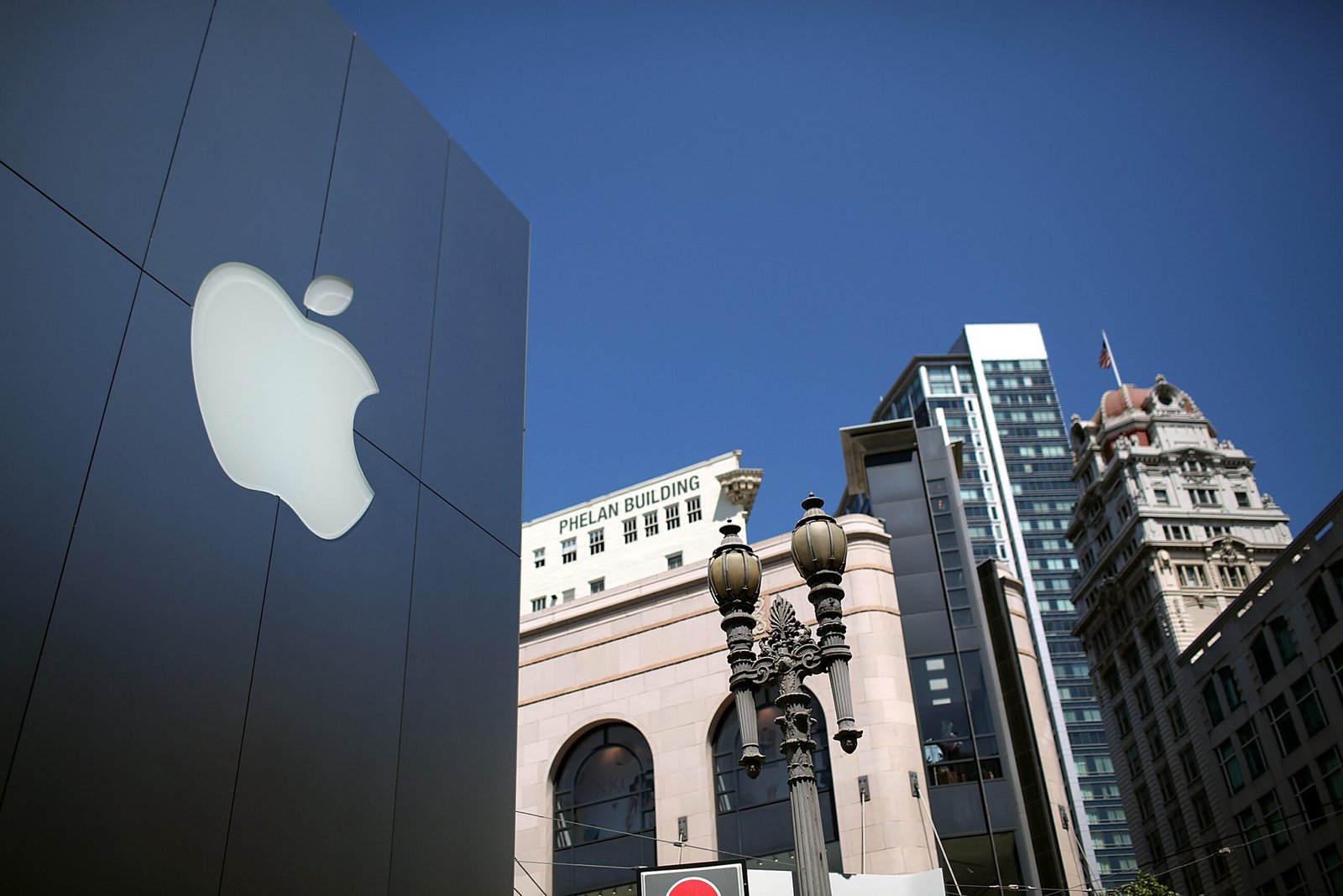One of the legal battles Apple is currently facing centers around accusations of monopolistic behavior related to the iPhone. Critics argue that Apple’s strict control over its App Store and the mandatory use of its payment system, which charges a 30% commission on in-app purchases, creates an unfair advantage for the company. This has led to lawsuits from developers, such as Epic Games, who claim that Apple’s practices stifle competition and limit consumer choice.
Apple, on the other hand, argues that its App Store policies are necessary to maintain a secure and reliable platform for its users. The company contends that the strict guidelines and review process help protect users from malicious apps and ensure a consistent user experience. Apple also points out that developers have the option to distribute their apps through other channels or create web-based applications that bypass the App Store entirely.
Another legal battle that Apple is currently grappling with relates to privacy concerns surrounding its latest product, the AirTags. These small tracking devices, designed to help users locate their belongings, have raised concerns about potential misuse and invasion of privacy. Critics argue that the AirTags could be used for covert tracking or stalking purposes, especially without the knowledge or consent of the person being tracked.
Apple has taken steps to address these concerns by implementing features to prevent unauthorized tracking. For example, the AirTags have a built-in safety mechanism that alerts users if an unknown AirTag is found to be traveling with them for an extended period of time. Additionally, Apple has also introduced an Android app that allows non-iPhone users to detect and disable nearby AirTags that may be tracking them without their knowledge.
Despite these efforts, some privacy advocates argue that Apple should have implemented stricter safeguards from the outset to ensure that the AirTags cannot be easily misused. They believe that more robust privacy controls and regulations are necessary to protect individuals from potential privacy violations.
In conclusion, Apple’s legal battles surrounding monopolistic behavior and privacy concerns highlight the complexities and challenges faced by one of the world’s most influential technology companies. These legal disputes have the potential to shape the future of the tech industry and have far-reaching implications for both Apple and its customers. As the legal proceedings unfold, it remains to be seen how these issues will be resolved and what impact they will have on Apple’s business practices and the broader technology landscape.
Furthermore, Apple’s critics argue that the company’s monopolistic behavior extends beyond its control over the App Store. They point to Apple’s dominance in the smartphone market as evidence of its anticompetitive practices. With a significant market share, Apple has the ability to dictate terms to both developers and consumers, effectively stifling competition and limiting innovation.
Another accusation leveled against Apple is its alleged preferential treatment of its own apps and services. Critics argue that Apple gives its own apps an unfair advantage by pre-installing them on every iPhone and making it difficult for users to replace them with third-party alternatives. This practice, known as “sherlocking,” has been a subject of controversy, with many developers claiming that Apple’s actions harm their businesses and prevent fair competition.
In addition to the accusations of monopolistic behavior, Apple has also faced scrutiny for its handling of user data and privacy. Critics argue that Apple’s strict control over its ecosystem allows the company to collect and monetize vast amounts of user data, without providing users with sufficient transparency or control over their personal information. This issue has become particularly relevant in light of recent data breaches and privacy scandals, which have raised concerns about the power and responsibility of tech giants like Apple.
Despite these accusations, Apple maintains that it operates within the bounds of the law and that its practices are necessary to maintain the integrity and security of its platform. The company argues that its strict guidelines and curated approach are essential for protecting users from malicious apps and ensuring a consistent and reliable user experience.
As the legal battles continue and public scrutiny intensifies, the outcome of these accusations of monopoly will have significant implications for Apple’s future. If the courts rule against Apple and find that the company has engaged in anticompetitive behavior, it could lead to substantial changes in the way Apple operates its App Store and conducts business. On the other hand, if Apple successfully defends its practices, it could strengthen its position as a dominant player in the mobile app ecosystem and solidify its control over the iPhone platform.
Privacy Concerns Surrounding AirTags
In addition to the monopoly accusations, Apple is also facing privacy concerns regarding its recently launched product, the AirTags. AirTags are small devices that can be attached to personal belongings, allowing users to track their items using the Find My app on their Apple devices.
While the concept of AirTags may seem convenient, privacy advocates have raised concerns about the potential for misuse and abuse. There are worries that these tracking devices could be used for stalking or other nefarious purposes. Critics argue that Apple has not done enough to address these privacy concerns and protect its users.
Apple has implemented several features to address these concerns, such as an alert system that notifies users if an unknown AirTag is traveling with them. The company also emphasizes its commitment to user privacy, stating that AirTags do not store any personally identifiable information and that location data is encrypted and anonymized. However, some argue that these measures are not sufficient and that more robust safeguards should be in place.
One of the main concerns surrounding AirTags is the potential for them to be used as a tool for stalking. Critics argue that the small size and discreet nature of AirTags make them ideal for tracking someone without their knowledge. This raises significant privacy concerns, as individuals may be unknowingly monitored and their movements tracked without their consent.
Another concern is the possibility of AirTags being used by malicious actors to gain access to personal information. If someone were to attach an AirTag to another person’s belongings, they could potentially track their movements and gain insight into their daily routines. This information could then be used for nefarious purposes, such as planning a burglary or targeting an individual for harassment.
While Apple has implemented measures to address these concerns, some argue that they are not sufficient. The alert system, for example, only notifies users if an unknown AirTag is traveling with them for an extended period of time. Critics argue that this does not provide adequate protection, as it may not catch instances where someone is being tracked for a shorter duration or in a more targeted manner.
Additionally, there are concerns about the security of the data collected by AirTags. While Apple claims that the location data is encrypted and anonymized, there is still the potential for this information to be intercepted or accessed by unauthorized individuals. This raises questions about the overall security of the system and whether users can truly trust that their personal information is being protected.
Overall, while AirTags offer a convenient way to track personal belongings, there are valid privacy concerns that need to be addressed. Apple must continue to work on enhancing the privacy features of AirTags to ensure that users’ personal information is protected and that the devices are not used for malicious purposes. Only by addressing these concerns can Apple regain the trust of privacy advocates and users alike.
The Implications for Apple and Its Customers
These legal battles have significant implications for both Apple and its customers. If Apple is found to have engaged in monopolistic behavior, it could be forced to make substantial changes to its App Store policies and payment system. This could open up the market to increased competition and potentially lower costs for developers and consumers.
On the other hand, if Apple successfully defends its practices, it could solidify its position and maintain its control over the iOS ecosystem. This could have a ripple effect on other tech giants and their app store policies, as they may face similar legal challenges in the future.
As for the privacy concerns surrounding AirTags, the outcome of these legal battles could determine the level of trust consumers have in Apple’s products and services. If Apple is able to address these concerns effectively and demonstrate its commitment to user privacy, it may strengthen its reputation as a company that prioritizes customer security. However, if the privacy issues persist or are not adequately resolved, it could erode trust and potentially lead to a decline in sales.
Moreover, the outcome of these legal battles could also have broader implications for the tech industry as a whole. Apple’s dominance in the smartphone market and its control over the App Store have long been a subject of scrutiny. If the courts rule against Apple and force them to change their policies, it could set a precedent for other companies to face similar challenges and potentially disrupt the status quo.
Additionally, the legal battles could also impact the relationship between Apple and its developers. The App Store has been a lucrative platform for many developers, but the 30% commission fee and strict guidelines have been a source of frustration for some. If Apple is forced to make changes to its policies, it could lead to a more favorable environment for developers, allowing them to have more control over their pricing and distribution.
Furthermore, the implications of these legal battles extend beyond just Apple and its customers. The outcome could have an impact on the entire app economy. If Apple is required to make changes to its App Store policies, it could lead to a more competitive marketplace, with other app stores gaining traction and offering alternative options for both developers and consumers.
In conclusion, the legal battles that Apple is currently facing have far-reaching implications. The outcome could shape the future of the app economy, impact the relationship between Apple and its developers, and determine the level of trust consumers have in the company. It is a pivotal moment for Apple and the tech industry as a whole, and the decisions made in these legal battles will have long-lasting effects.
































